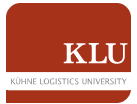The 9th Austrian Early Scholars Workshop in Management
November 19–20, 2021
@ JKU—Johannes Kepler University, Linz, Austria
The Ninth Austrian Early Scholars Workshop in Management provides an opportunity for advanced PhD students and academics in early career stages from all countries to present their research and discuss it with colleagues and professors from international and Austrian universities. In addition to facilitating intellectual exchange, this program supports the development of a global network of Early Scholars interested in management and organization studies from institutional, organizational and behavioral perspectives.
Workshop Conveners & Faculty Members
- Robert M. Bauer, Professor of Organization and Innovation (JKU Linz)
- Giuseppe Delmestri, Professor of Change Management & Management Development (WU
- Vienna)
- Renate Ortlieb, Professor of Human Resources (University of Graz)
Faculty
- John Amis, Professor of Strategic Management & Organisation (University of Edinbrugh)
- Regine Bendl, Professor of Gender & Diversity (WU Vienna)
- Claudio Biscaro, Professor of Leadership & Change Management (JKU Linz)
- Matthias Fink, Professor of Innovation & Entrepreneurship (JKU Linz & ARU Cambridge)
- Thomas Gegenhuber, Professor in Management of Socio-Technical Transitions (JKU Linz)
- Renate Meyer, Professor of Organization Studies (WU Vienna & CBS Copenhagen)
- Markus Reihlen, Professor of Strategic Management & Digital Transformation (Leuphana University)
- Elke Schüßler, Professor of Organization (JKU Linz)
- Jörg Sydow, Professor of Management and Inter-firm Cooperation (FU Berlin)
- Paul Tracey, Professor of Innovation and Organization (Cambridge University)
- Eero Vaara, Professor in Organisations Impact (Oxford University)
Target Group and Eligibility
The target group of the Workshop is early career scholars who intend to pursue an academic career in the fields of organization and management theory, strategy, innovation, entrepreneurship, organizational behavior, HRM, international management or public management. The Workshop is open to academics in early stages of their academic careers and PhD students who have already completed a substantial part of their dissertation projects.
The Austrian Early Scholars Workshop in Management invites research that covers a broad range of topics and draws from a variety of theoretical and methodological approaches. In addition, given faculty members’ extensive expertise in institutional theory as well as in organizational change, innovation and entrepreneurship, the Workshop provides an environment particularly conducive to research in these areas.
Application Process
Applicants are requested to submit a CV and a short essay (max. 2,000 words) that summarizes their research to be presented during the Workshop. Please upload your CV and short essay no later than October 3, 2021 to https://web.tresorit.com/r#MhlCWFh-Ybj10xbhGUkJSg.
Notification of acceptance is sent out no later than October 10, 2021. A longer paper, either an extended essay (max. 4,000 words) or a full paper (max. 8,000 words), must be submitted by November 10, 2021 for distribution to discussants and participants.
Workshop Format
All participants present a piece of empirical or conceptual research during the Workshop. Each participant is assigned one of two formats: (1) presentation in a plenary session (twenty minutes for presentation, followed by ten minutes for feedback from two discussants and ten minutes for open discussion); (2) discussion at a development roundtable with four Early Scholars and two faculty members (five minutes for introductory statement followed by 25 minutes for everyone at the roundtable to provide feedback based on their advance reading of the paper, and open discussion).
To be able to contribute fully to the discussions and aid their fellow researchers, participants are required to prepare by reading their colleagues essays and full papers prior to the Workshop. Essays and papers are distributed electronically one week prior to the Workshop.
Program and Fees
The Workshop commences on November 19, 9:00 a.m. We adjourn no later than November 20, 4:00 p.m. There are no participation fees for accepted Early Scholars. The Workshop Dinner on Friday is covered by the organization.
Conference Venue
The Workshop is held at the JKU Campus in Linz, Austria (https://www.jku.at/en/campus/the-jku-campus). The campus is conveniently accessible by public transportation: A streetcar runs from the train station to the campus. Frequent, fast trains connect Linz to Vienna, Salzburg and Munich (https://tickets.oebb.at/en/ticket/travel?cref=oebb-header).
We also offer a few slots for virtual participation in a development roundtable to provide Early Scholars, who cannot travel to Linz, with an opportunity to give and receive feedback.
Accommodation
Participants are responsible for their travel arrangements and accommodation. We reserved hotel rooms close to campus. Program coordinators will contact accepted participants and, if desired, provide support with booking suitable accommodation.
COVID-19 Pandemic: Safety Measures and Disclaimer
After almost two years of online communication, we seek to provide Early Scholars with an opportunity for face-to-face dialogues and spontaneous personal interaction both during and beyond the official Workshop program. JKU has implemented strict safety protocols to prevent the spread of COVID-19 and will continue to do so. Since it is by far the most effective preventative measure, we kindly ask participants to arrive fully vaccinated, thereby protecting everyone present and easing scholarly and social togetherness. Some uncertainty will however remain: should free travel to and from Austria not be possible in November, the
Workshop will have to be cancelled. We provide an update on the COVID-19 situation together with the notifications of acceptance by October 10.
Call for Applications





